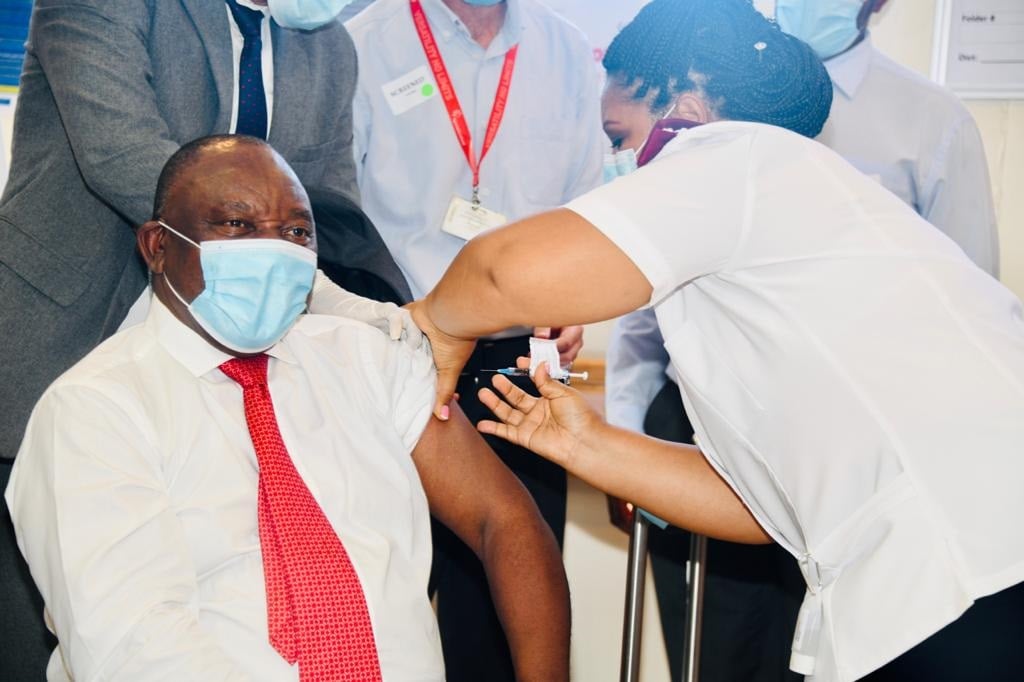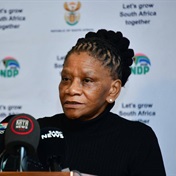
A multi-stakeholder group led by the Health Justice Initiative (HJI) has found that the South African government paid millions of rands for Covid-19 vaccines from global pharmaceutical manufacturers and suppliers under unfavourable terms and conditions, compared to Western nations.
The HJI, a nonprofit organisation that advocates for a more inclusive and fair public and global health system, analysed four Covid-19 vaccine procurement contracts government signed with big pharma companies like Johnson & Johnson and Pfizer.
The findings, which were shared on Tuesday during a media briefing, show that government was "bullied" into signing away its sovereignty and agreeing to the terms for vaccine contracts that were one-sided and unethical via "ransom negotiations".
READ: Court orders health department to hand over all Covid vaccine contract info to NPO
The HJI won a legal challenge last month in the Pretoria High Court to compel the national department of health to hand over the Covid-19 vaccine contracts to the organisation in the interest of transparency and accountability. The department had opposed the HJI's application to access the documents through the Promotion of Access to Information Act, but it did not appeal the high court ruling. Instead, the department handed over the contracts to HJI last Friday.
Terms and conditions one-sided
According to the information obtained by the nonprofit organisation, the terms and conditions of the contracts are “overwhelmingly” one-sided and favour multinational corporations.
The HJI said in a statement:
The documents revealed that none of the contracts signed with pharmaceutical manufacturers were under South African legal jurisdiction. For example, the agreement between US-based J&J and the South African government was conducted under English and Welsh law.
READ: Health department complies with court order to hand over Covid-19 vaccine contracts
Compared to Western nations, South Africa was liable for payments of at least $734 million (over R14 billion), including advance payments of almost $95 million, with no guarantees of timely delivery.
J&J charged South Africa $10 a dose, which is 15% ($1.50 a dose) more than the company charged the EU and about 25% more than the estimated not-for-profit price. For an order of at least 30 000 000 doses, the total bill will have reached $30 000 000. South Africa was required to pay a non-refundable down payment of $27.5 million.
The HJI said:
“The Group analysed all the documents handed over to HJI since 31 August 2023, and found that the agreements placed people and governments in the global south in the unenviable position of having to secure scarce supplies in a global emergency (2020-2022) with unusually hefty demands and conditions, including secrecy, a lack of transparency, and very little leverage against late or no delivery of supplies or inflated prices - resulting in gross profiteering.”
SA's sovereignty
The HJI and its partners have accused government of bartering away its sovereignty in exchange for scarce vaccine supplies during the Covid-19 pandemic, describing this as “unconscionable, imperial and unethical”.
The director of HJI, Fatima Hassan, has expressed concern over the deference to and fear of powerful pharmaceutical companies by government.
She said:
“The contracts reveal the phenomenal power that pharmaceutical companies wielded in negotiations. In our scramble for desperately needed vaccines, South Africa was forced to hand over unimaginable sums of money for overpriced vaccine doses.
“We were bullied into unfair and undemocratic terms in contracts that were totally one-sided. Put simply, pharmaceutical companies held us to ransom. And we must ask: did they do it to other countries too?”
The second batch of documents - which includes the negotiation meeting outcomes, minutes and correspondence - will be shared publicly next month.




 Publications
Publications
 Partners
Partners









